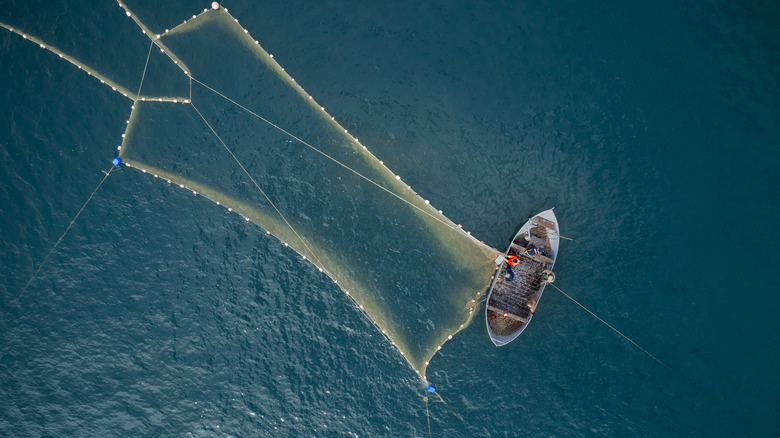The Real Reason The Baiji Dolphin Went Extinct
Mainland China is home to some surprising wildlife. Where Western audiences may be well acquainted with the panda and unrelated red panda, China is also home to animals like the Chinese alligator; one of only two alligator species in the world (via Smithsonian National Zoo). Like many Chinese species of gibbon, musk deer, and tiger, it is a critically endangered species with only a few hundred wild specimens left (via World Atlas). One species, in particular, has unfortunately become the face of extinction in China — the baiji.
The baiji was a dolphin adapted to life in freshwater rivers, distinguished by a very narrow snout and a reliance on sonar for navigation due to poor eyesight. The animals had few natural predators to worry about as they fed on fish in the Yangtze River. Although they are officially labeled as critically endangered, an expedition to find wild examples in the early 2000s turned up nothing (via Scientific American). As unfortunate as this lack of results was, in hindsight, it is hardly surprising given the previous decades of human activity (via IUCN).
Reckless fishing practices caused the Baiji's extinction
While the baiji was directly targeted for its meat by hunters, this alone was not the cause of its extinction. Throughout the 20th century, an increasing number of construction projects were centered on the river, including the massive Three-Gorges Dam (via Whale and Dolphin Conservation). As the dolphins relied on their sonar capabilities, human noise hindered their ability to navigate and finding food became extremely difficult. Human encroachment also brought massive amounts of pollution into the waters, further decreasing the amount of area where the dolphins could live.
The biggest contributor to the baiji's extinction was over-fishing. As fishermen began harvesting massive amounts of fish from the river, baiji were not only losing their food source but were being injured and killed by boat collisions, entanglement in nets, and even electric fishing (via Monagbay). While the Chinese government did enact legislation to curb these practices, the damage had already been done. At best, around a dozen baiji could still survive, while the last captive animal died in 2002 (via The Guardian).

